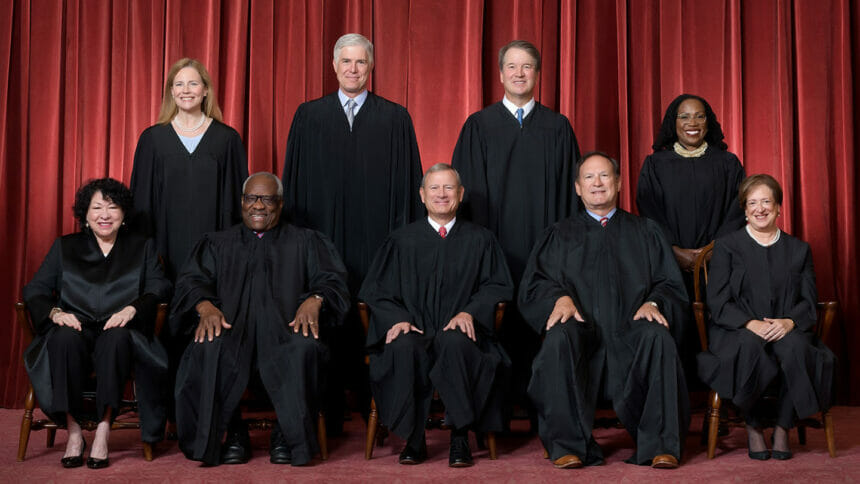
Individuals who have no plans to use disability services but still “test” standards to force compliance with federal disability law can continue to do so, the Supreme Court ruled this week.
While the case involved allegations against the hospitality industry, the ruling also has implications for nursing homes, other healthcare providers and any public facility required to meet the conditions of the Americans with Disabilities Act.
Those facilities, at least for now, can still be legally targeted by so-called testers who can’t prove that they suffered or could have suffered a “concrete” injury. But the court said in making Acheson Hotels v. Laufer moot over largely technical issues that it stood ready to consider the merits of a similar case in the future.
The justices on Tuesday ruled 9-0 against Deborah Laufer, who had sued hundreds of hotels whose websites failed to state whether they had rooms accessible to people with disabilities. Although she has various mobility and visual impairments, Laufer had no standing to sue because she didn’t actually plan to stay at the hotel, a lower court ruled.
An appeals court reversed that initial ruling, and the hotel brought the case to the High Court for oral arguments in October. It was one of three cases with critical importance for skilled nursing facilities scheduled for the 2023-2024 term.
Mark Reagan, managing shareholder of Hooper, Lundy & Bookman, previously told McKnight’s Long-Term Care News that a ruling in Acheson’s favor could have helped long-term care providers avoid expensive legal costs.
“Professional plaintiffs who seek to manufacture ADA litigation without tangible injury or harm represent threats to businesses across the nation, including nursing facilities,” Reagan said.
The court itself seemed open to arguments such as Reagan’s, as evidenced by the majority opinion written by Associate Justice Amy Coney Barrett. Federal appeals courts remain split on the issue. Coney Barrett also noted that the court made the Laufer case moot, rather than rule on the merits, because she withdrew her remaining cases after her lawyer was banned from practicing law last year.
“We are sensitive to Acheson’s concern about litigants manipulating the jurisdiction of this Court,” Coney Barrett wrote. “We are not convinced, however, that Laufer abandoned her case in an effort to evade our review. … We emphasize, however, that we might exercise our discretion differently in a future case.”
Reagan said Thursday that the opportunity to reconsider the issues at the Supreme Court could be a long-time coming.
“I am not familiar with other cases within striking distance for SCOTUS review, but it is always a rare instance for the Court to grant certiorari (review) in any case,” he told McKnight’s.
Acheson’s attorneys had insisted that the court rule on the merits, adding that the standing issue “might not come back anytime soon.” While Laufer has vowed not to bring more suits as a tester, the hotel’s attorneys argued “others will file in the circuits that sided with her, and [defendants] will settle, regarding it as pointless to challenge circuit precedent in this Court.”
The Supreme Court upheld the validity of testers in a 1982 case involving the Fair Housing Act, but the AARP Foundation has noted that the ADA is “not as explicit as the Fair Housing Act in recognizing the type of informational harm Ms. Laufer alleges.”




